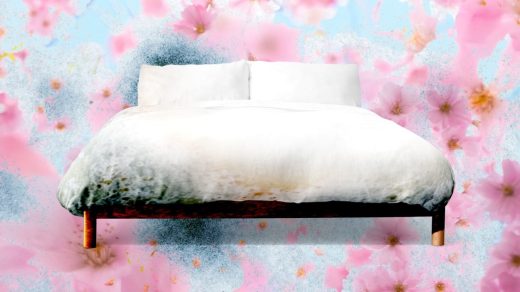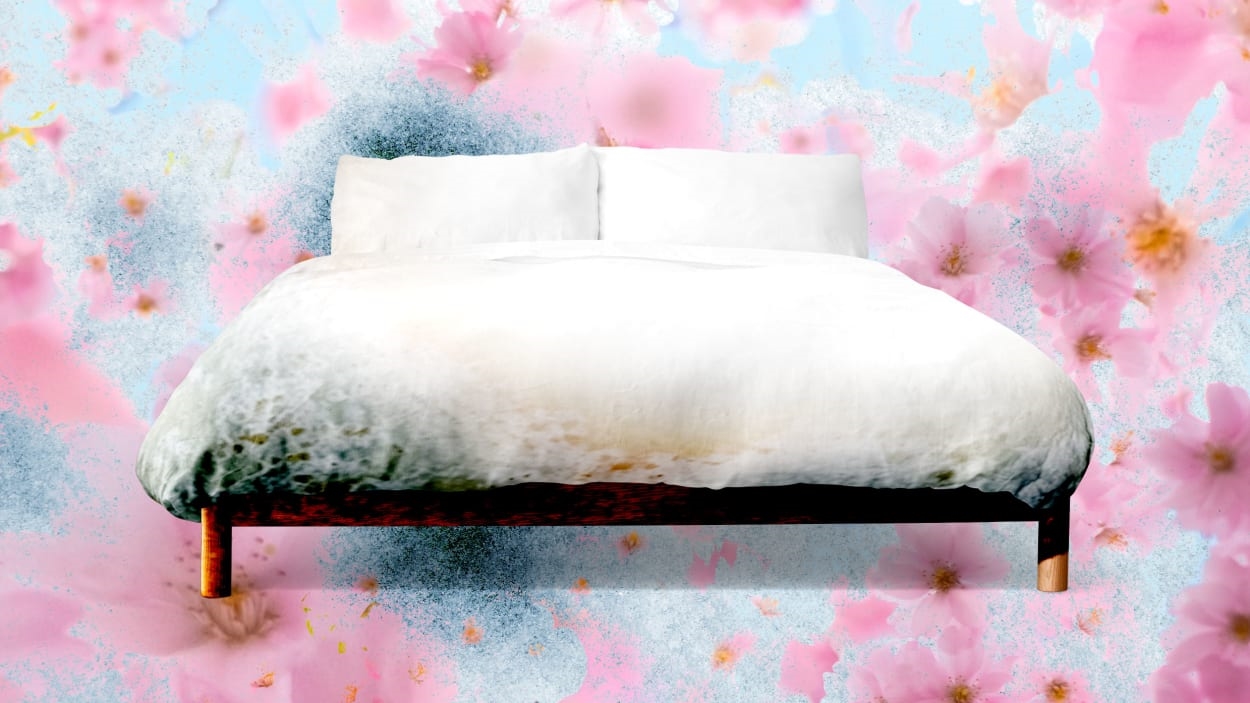‘Bed rotting’ doesn’t mean Gen Z is lazy, but is it really self-care?
By Sarah Bregel
The latest Gen Z self-care trend, bed rotting, which has over 305 million views on TikTok, is not as gross as it sounds. It’s a fairly accurate term for a good old-fashioned day of wasting away in bed after a chaotic week, and maybe a hangover to top it off.
It’s certainly not new. Lying in bed and ordering food, watching TV, or napping is something college kids and young professionals have been doing for, well, eons. The only thing new or inventive about bed rotting is labeling it “self-care,” which renders it a far more acceptable practice. Under the umbrella of wellness practices, it’s no longer a gross, lazy, borderline-destructive habit. It’s a necessary collapse—a reset of sorts. That actually makes sense in the overstimulating, relentlessly busy, and exhausting world of 2023.
Older generations might not agree that a day spent in bed is actually justifiable. After all, they’re often content to call out Gen Z for being lazy and entitled, simply for existing. What they actually are is the generation that calls it like they see it, slaps some descriptive verbiage on it, then posts it on TikTok. Bed rotting: It’s self-care. It’s good for you. And now you can do it sans shame. If they were marketing bed rotting (and some of them probably are), it would be a purely brilliant scheme.
That’s especially true because people seem to need it more now than ever. We’re in an epidemic of poor mental health and unprecedented levels of stress. Burnout, financial hardship, political upheaval, and discouraging human rights struggles persist. When it comes to workplace stress, new research points to Gen Z as being the most tapped out. So, if keeping your sheets warm for a 24-hour period was ever going to be dubbed acceptable, now is a pretty legit time.
Still, we have to wonder if calling it “self-care” is a stretch (unless there is any actual stretching going on during the rot, but we’re pretty sure there is not).
Before it became a TikTok hashtag, lying in bed all day would typically be seen as a sign that something is wrong. Whether that something is a hangover, mild (or deep) depression, exhaustion, or a sign of illness—or just a normal reaction to unprecedented levels of stress—glamorizing it probably isn’t great.
Nathalie Savell, a holistic psychotherapist and nature therapy facilitator in Baltimore, says her clients’ most common struggle is persistent, and sometimes debilitating, anxiety. But she says that bed rotting isn’t the self-care she would recommend because while it might feel like what we want during times of stress, it’s not what we need.
“People think they’re helping themselves because a stressed brain just wants to shut down, but what it actually needs is healthy types of stimulation and rest,” she says. And while the problem often begins with burnout, according to Savell, it can turn into “avoidant” behavior.
Relying on bed rotting to cope isn’t the fault of Gen Z, she says. It’s a result of being constantly connected or in motion, coupled with a culture that doesn’t make a ton of space for people to shut down or reset in healthy ways. It’s the fallout from a modern life filled with relentless demands and overstimulation. Savell asserts that while the world is “full of anxiety,” we lack “structures set up in a helpful way for coping.”
What’s better than bed rotting? Well, for starters, actual balance. Savell says time in nature, logging offline, and even crying can all be real forms of self-care that will go a lot farther than snuggling down and staring at your phone all day from under the safety of your covers. But until we change the ever-so-demanding rhythms of our fast-paced culture, the rot is likely to persist.
While bed rotting might be more acceptable, more desirable, and trendier than ever, it’s still not a healthy coping mechanism for stress, burnout, or debilitating anxiety. No one should be judged for enjoying a day of uninterrupted nothingness—we’ve all done it—but dubbing it self-care, or trying to normalize the frequency at which young, healthy people need a full day of rest, is worrisome. It should tell us that the kids are not alright.
(28)



